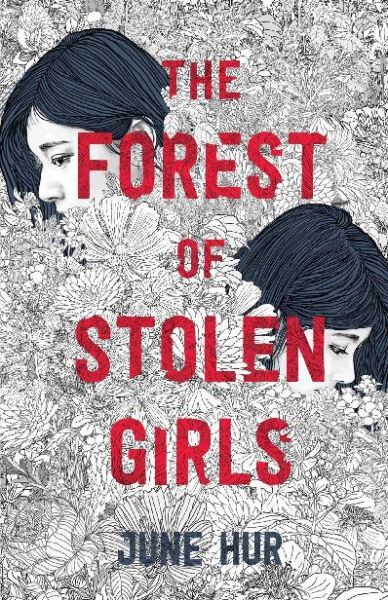Mystery to Me
The Forest of Stolen Girls
By June Hur

26 May, 2021
0 comments
June Hur’s 2021 The Forest of Stolen Girls is a standalone historical mystery.
Disguised as a man, armed with her father Detective Min Jewoo’s half-burned notebook, Min Hwani returns to the island of Jeju, hoping to learn why her father vanished there. Hwani has not seen Jeju in five years, not since Jewoo accepted a promotion to a better position on the mainland and the family moved. Hwani doesn’t want to return, but she has a filial duty to find her father or at least find out what happened to him. Detecting isn’t proper female behavior, but filial duty trumps convention.
Jeju has suffered a century of misfortune. First it was conquered by the Mongols, who plundered the island. When the Yuan Dynasty fell, the mainland Korean state, Joseon, re-acquired Jeju, but viewed it as foreign and uncouth. It’s seen as best fitted to hold exiled political prisoners and as a source of beautiful women. They are sent as tribute to China’s Ming dynasty, to which Joseon is a tributary.
Hwani’s father returned to the island to investigate a series of mysterious disappearances. Thirteen young girls have vanished, their fates unknown. Perhaps Detective Min discovered where they went or at least who was responsible; perhaps that’s why he too vanished.
The authorities concluded on the basis of slender evidence that the detective was eaten by a bear. Hwani does not believe this, thus her current mission.
There is a second purpose to Hwani’s trip. Her estranged sister Min Maewol still lives on Jeju, apprenticed to a shaman. Perhaps the two can bridge the gap created when Detective Min took his wife and Hwani to the mainland. Perhaps Maewol can help Hwani solve the mystery of their father’s disappearance.
Complicating the case: as children, Hwani and Maewol were involved in another mystery, the death of a young woman named Seohyun. The death was dismissed as suicide. Detective Min suspected it was no suicide. Hwani was too traumatized to remember the events. Maewol claimed to have seen a man in a mask. Seohyun’s body was quickly disposed of before a formal inquest could be held. Before the matter of the thirteen missing girls, the supposed suicide was the only case the detective failed to resolve to his own satisfaction.
Still, perhaps the only connection between the cases is that both took place on Jeju Island and both involved Detective Min. It’s up to Hwani (and her sister, if Maewol will consent to help) to unravel who kidnapped the girls and for what purpose. Or perhaps the sisters will simply be made to vanish as their father did before them.
~oOo~
I don’t think I’ve seen a woman dressing as a man exposed as a woman quite as quickly as happens in this book. It would seem that cultures with rigidly defined gender-based wardrobes would be more easily fooled by cross-dressers, but that is clearly not always true. Maybe it helps not to try cross-dressing in a region where one’s family is known.
I regret to report that matters do not improve for Jeju for quite some time, that the central theme of Joseon rule was not a glorious celebration of cultural diversity, and that the Ming demands for living tribute would be echoed by the Japanese custom of taking sex slaves. As well, you may expect that Joseon having been treated poorly by Mongols and Ming would be careful not to treat subsidiary regions as Korea was treated.
In the particular case of the missing girls, the investigation is greatly hampered by the fact that almost nobody who matters cares what happened to thirteen peasants. A close look might be inconvenient for the local authorities. As far as mainland Joseon is concerned, an island of political prisoners and nigh-foreign peasants is of little — although not no — concern. Declaring that the girls must have all run away is the least disruptive course.
The investigation is even more difficult because crimefighting is not a recognized pastime for well-connected young women of this time and place. Hwani’s aunt would prefer that Hwani submit to whatever advantageous marriage the aunt can arrange for her distastefully unconventional niece. Resistance is met with successively less enticing grooms.
Of course, exploitive societies and indifferent or corrupt authorities are a standard setting for detective stories. Hwani is not quite the protagonist described in Chandler’s ““down these mean streets a man must go who is not himself mean, who is neither tarnished nor afraid,” in that she is perfectly capable of feeling fear. She simply does not allow it to deter her in her pursuit of the truth.
A diverting, well-crafted mystery.
The Forest of Stolen Girls is available here (Amazon US), here (Amazon Canada), here (Amazon UK), here (Barnes & Noble), here (Book Depository), and here (Chapters-Indigo).
